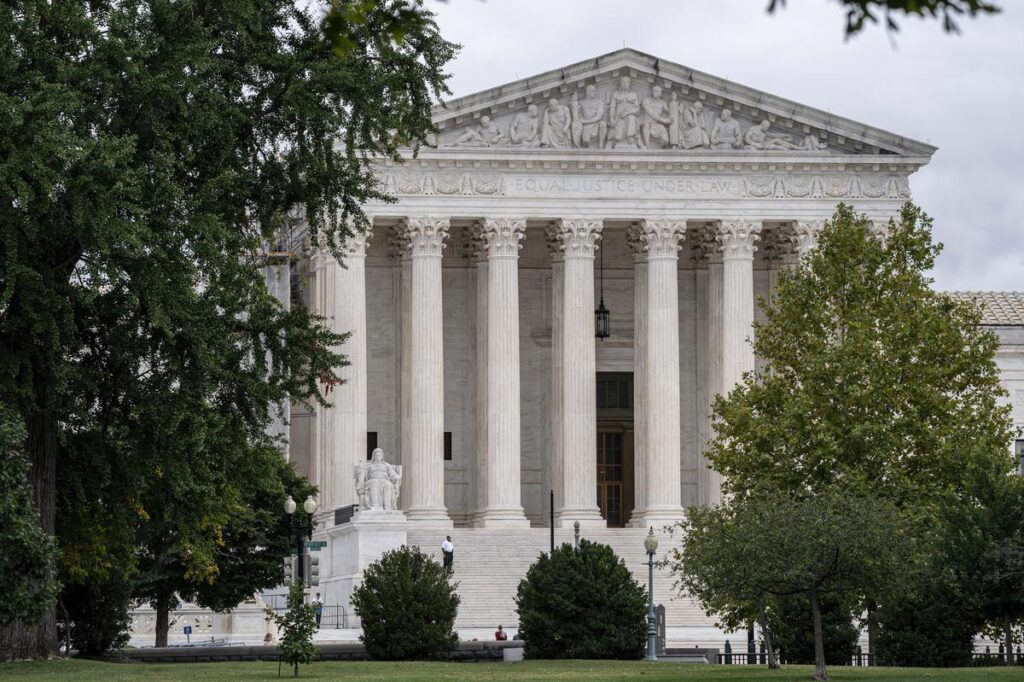Lower courts in Florida and Texas are required by the US Supreme Court to reevaluate legislation that limits social media companies’ content control authority. This is a historic ruling with broad ramifications for digital rights and governance. These rules, which aim to control social media platforms like Facebook, Twitter, and others, have sparked contentious debates about free speech, censorship, and the state’s authority over digital media.
Florida and Texas, both championed by Republican legislators, which sought to impose regulations on social media companies’ content moderation practices.
- Florida’s Law: Enacted in 2021, this law targets social media platforms generating over $100 million annually or with at least 100 million monthly users. It mandates restrictions on content moderation practices and requires transparency in how platforms handle user posts and notifications about moderation actions.
- Texas’s Law: Similar to Florida’s statute, Texas’s law focuses on platforms with more than 50 million active monthly users. It imposes rules on content moderation, including requirements for notification and transparency in algorithmic prioritization of content.
Legal Challenges and Court Proceedings
The laws faced immediate legal challenges from trade associations representing major tech companies such as Google (Alphabet), Meta (Facebook), and others. These associations argued that the laws infringed upon the First Amendment rights of the platforms, contending that state regulations interfered with their ability to moderate content according to their own policies and community guidelines.
- District Court Actions: Initially, district courts in both Florida and Texas blocked enforcement of the laws, siding with the trade associations’ arguments that the regulations likely violated the First Amendment protections against government interference in speech.
- Appeals and Supreme Court Intervention: Both cases were subsequently appealed to higher courts. The U.S. Court of Appeals for the 11th Circuit upheld the district court’s decision in Florida, affirming that the law posed unconstitutional restrictions on social media platforms’ editorial discretion. The Texas case was also under appeal when the Supreme Court intervened.
Supreme Court’s Ruling and Its Significance
Justice Elena Kagan delivered the Supreme Court’s opinion in a unanimous ruling, pointing out errors in the lower courts’ conclusions about the laws’ constitutionality. The Court stressed that a proper analysis should take into account the entire scope of applications of the laws, making a distinction between effects on free speech and content moderation that are constitutional and those that are not.
- Key Legal Principles: The Court underscored the importance of evaluating whether a law’s unconstitutional applications significantly outweigh its constitutional ones. This nuanced approach aims to balance state interests in regulating digital platforms with the fundamental rights of free expression and editorial autonomy.
- Implications for Free Speech: The rulings are expected to have profound implications for the regulation of online speech and content moderation practices. By scrutinizing state laws through the lens of the First Amendment, the Supreme Court reaffirms the critical role of judicial review in safeguarding digital freedoms amid evolving challenges posed by internet governance.
Future Outlook and Policy Considerations
The Supreme Court’s directives send a clear message about the complexities of regulating social media platforms in a digital age. As technology continues to reshape communication and information dissemination, policymakers, legislators, and tech companies must navigate a delicate balance between regulatory oversight and safeguarding fundamental rights.
- Industry Reaction: As limitations on state regulatory authority over digital platforms and as confirmations of the principles of free speech, tech companies and advocacy groups have hailed the rulings. They argue that allowing states to impose disparate regulations could result in a disjointed regulatory environment that is detrimental to online discourse and innovation.
- State Power versus Federal Supervision: In addition, the decisions call into question how the federal and state governments should be divided in terms of authority when it comes to policing online platforms. As debates unfold, stakeholders will likely scrutinize potential legislative remedies and federal frameworks that could provide clearer guidelines for digital governance.
In summary, the Supreme Court’s rulings on the social media laws of Florida and Texas represent a turning point in the ongoing discussion about digital rights and platform regulation. By reaffirming constitutional protections for online speech while scrutinizing state-level regulations, the Court sets a precedent that resonates far beyond the legal realm, influencing future policies and practices shaping the digital landscape. As society grapples with the implications of digital technology on free expression, these rulings serve as a cornerstone in defining the boundaries of state authority and individual liberties in the digital age.
